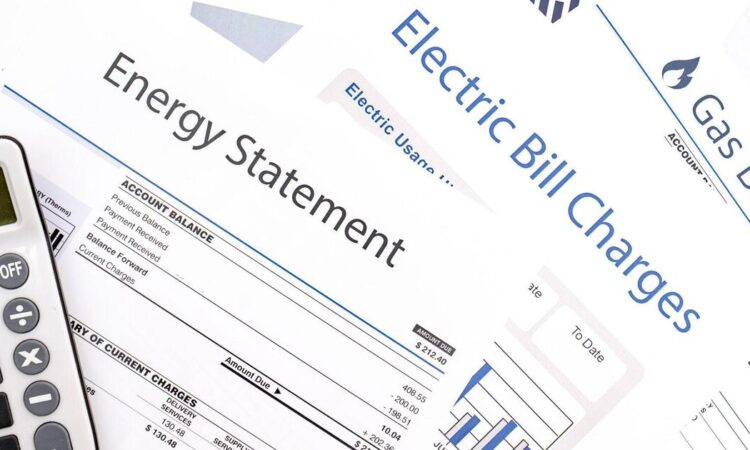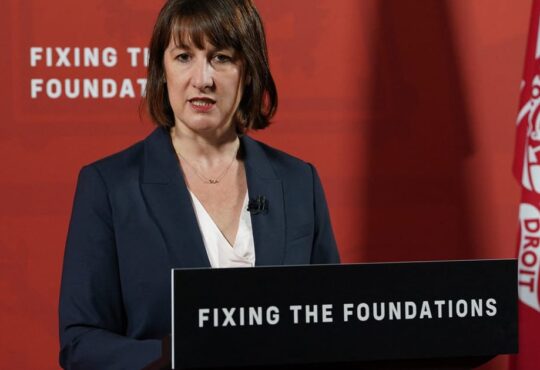Financial costs do not add up for large number of households

Here’s hoping that people got the Christmas they were dreaming of and that it didn’t cost more than people were able to afford, assuming it was affordable at all.
Some people no doubt were glad the cold snap gave way to slightly warmer weather, so that the heat could be turned down or off. Now that the new year has arrived, many will be concerned how far the electricity subsidies will stretch through the rest of the winter, how repayments on loans will be met, and how the rent will be paid. If so, they are amongst a growing number of Irish households for whom the numbers just don’t add up.
It is hard to say how many, however, because we are not so good at publishing the relevant data in Ireland.
For example, the Commission on the Regulation of Utilities, or CRU, has not published figures on domestic gas and electricity accounts in arrears since April 2021. The Central Bank publishes figures every three months on family home mortgages in arrears but does not publish data on unsecured loans in difficulty provided by the financial firms it regulates. That means that the number of arrears on car loans, personal loans, credit sales, credit cards, overdrafts, moneylenders and buy now pay later loans is not at all clear. Neither are figures published on rent arrears in the private rented sector, a task that could be assigned to the Residential Tenancies Board if property owners were required to provide the data.
You might wonder why this is. The Free Legal Advice Centres, or Flac, have highlighted concerns related to consumer debt in a series of papers published in the last two years, which we called Pillar to Post.
Lack of information
In a period of high inflation where the cost of living has got out of hand, when interest rates are rising and affordable housing options are so thin on the ground, one would think that providing detailed information on the current extent of the problem would be the first step in managing a coherent response. However, it may be that the absence of detailed information on the current extent of unmanageable debt is one way of bypassing the issue.
Whatever the reasons, failing to measure the extent of the problem is unlikely to lead to adopting the required solutions.
In May 2022, by contrast, Feantsa, the European Federation of National Organisations Working with the Homeless, published its Seventh Overview of Housing Exclusion in Europe. This report provides detailed information collated from a variety of sources, including from the European Union Statistics on Living and Income Conditions, that raises significant concerns around housing debt arrears and utility costs.
For example, close to one in five of households in Ireland considered at risk of poverty were in rent or mortgage arrears in 2020. The gross debt-to-income ratio of households in Ireland remained at over 100% in 2020. The cost of electricity, gas and other fuels in Ireland increased by 14% between 2020 and 2021 alone.
These figures are from well before the effects of the cost-of-living crisis began to impact. The question is where do we stand at the start of 2023?
The absence of domestic data on arrears is not the only indication that the problem of consumer debt in our society, made worse by current adverse international events, is not being treated with the gravity that is required.
A further example concerns the unexplained and now chronic delay in the completion of the statutory review of the Personal Insolvency Act, 2012, the primary piece of legislation in our legal system designed to facilitate the write down of unmanageable debt in an orderly and legally binding manner. As set out in the legislation itself, the review of the Act should have been completed in July 2016 and a report prepared for the Dáil and Seanad one year later, after which an amending Bill to was to have been prepared.
Belatedly commenced in autumn 2013 well after the effects of the financial crisis had begun to hit many indebted households, the legislation has failed to make the necessary impact. Around 10,000 arrangements put in place over a period of almost nine years is far short of the numbers predicted when the regime was introduced.
Targeted amendments were introduced in early 2016 (and later in 2021) to allow for a review to be sought in the courts for the first time where a proposed arrangement was rejected. However, these changes applied only to proposed arrangements which included a family home mortgage. Though numbers did initially increase following the changes, increases in property values have subsequently limited their effect.
Figures published in a July 2021 Central Bank research paper provide a clear sense of the looming problem. Some 95,000 family home mortgages were reported to be facing a payment shortfall at the end of the mortgage term. A significant number of such loans have been restructured, with many borrowers concerned approaching retirement age where future income capacity will be minimal.
Debt-for-equity swaps
A potential though limited solution lies in so-called debt-for-equity swaps where the mortgage lender may recover monies owed following the borrower’s death and the sale of the family home. Recent case law from the High Court, however, confirms that the secured lender’s consent is required for any such proposal.
The legislation has continued to make arguably unwelcome headlines for the occasional high profile arrangement involving the write off of large sums for previously high worth individuals, but has not sufficiently delivered for those on low and middle incomes, particularly in the case for people with unsecured debt only.
Thus, where an applicant does not have a family home mortgage and makes a proposal to settle unsecured debts only, there is no right of review in the courts where that proposal is rejected by creditors. In the case of “no income, no assets” debtors, access to a full write down of debt through Debt Relief Notices is subject to far too many restrictions.
For 30 years at the forefront to assist people in financial difficulty has been the Money Advice and Budgeting Service, or Mabs. In our view, it is past time that Mabs was put on a statutory basis as a standalone service and given the independence and the budget it needs to provide a comprehensive range of services to help resolve debt cases.
The provision of credit is part and parcel of a market economy, and one that provides substantial profits for lenders. Unforeseen events — unemployment, illness, separation, business failure, low income, recession — can occur and the inability to pay becomes a fact of economic life for some borrowers. .
People who run into difficulty require detailed advice and debt resolution mechanisms to address problems early and fairly
Paul Joyce is senior policy analyst at Flac, the Free Legal Advice Centres






